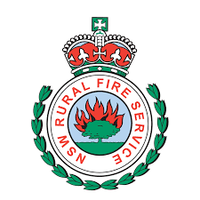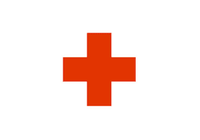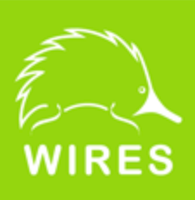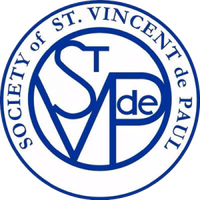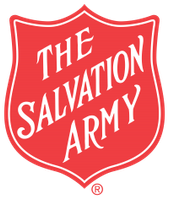
Australia is experiencing one of the worst fire seasons ever recorded. The rapid pace of the burn along with heavy smoke has made it extremely difficult for emergency services to evacuate certain communities. Over a billion animals and dozens of human lives have been lost. More than 2,000 homes to date have been destroyed, and the long-term impact on the environment and people’s lives has yet to be calculated.
As a global community, Pledge 1% has many valued members in Australia. Today, we are calling our global network to come together to help support the efforts in Australia. With help from Atlassian and some of our other Australian members, we’ve collected the following list of charities and organizations you can give to to support the fire relief efforts.
The main firefighting organization in NSW directly fighting the fires. Many of these volunteers have been battling against these fires for months now and are risking their lives in the process. NSW has pledged that it’s donations will go not only to the Fire Service but to victims of the fires as well.
The Red Cross Disaster Relief and Recovery teams are assisting communities that have been affected by the fires. They help provide evacuees of over 69 different areas with water, food and comforts. In addition, they are arranging emergency accommodations, helping connect missing loved ones and beginning a cash grant program that is intended to help support local businesses and help people meet their immediate needs.
WIRES is dedicated to helping rescue and rehabilitate the animals impacted by the fires. Survivors need all the help they can get in the wake of such intense habitat destruction. Donations to WIRES helps support their immediate recovery, along with longer goals such as habitat restoration and food shortages.
St. Vincent de Paul Society is helping the thousands of dislocated people who need emergency housing, along with providing other essentials such as food, water and clothing. They’ve launched the Vinnies Bushfire Appeal to directly help families who have been evacuated.
Much like the Red Cross and St. Vincent de Paul Society, the Salvation Army is supporting members of communities that have been affected by the fires. They are providing clothes, food, water and shelter along with emergency service teams in response to loss of life and property.

This story was submitted as part of the #Pledge1Gives GivingTuesday campaign, which celebrates the many ways our member companies are having an impact around the world.
Horizon champions socially responsible change internally and externally, encouraging other companies to follow suit by speaking to the potential for companies, regardless of size, to give by leveraging collaborative partnerships and employee engagement.
One of Horizon’s most profound partnerships is with the Perspectives/IIT Math and Science Academy (MSA), a school in the Bronzeville neighborhood of Chicago which embraces the idea of educating the whole child. Since launching the partnership in 2016, Horizon has provided it’s profit and time in infrastructure and programming support, as well as over 1,000 hours of employee volunteering.
To date, infrastructure projects have included the installation of water filtration stations to eliminate exposure to lead-contaminated drinking water, constructing a central front office to increase student safety, and creating a peace and meditation room for students to decompress from environmental stressors and practice healthy coping skills.
Horizon’s financial support has also enabled a number of new programs and curriculum to be available for students, exposing them to new ideas and potential career paths. With these programs, Horizon employees generously contribute their time. Employees mentor students through programming with the Network for Teaching Entrepreneurship, Illinois Science and Technology Coalition STEM Challenge, as well as Horizon’s own STEM career speaker series. Students not only hear about various STEM career trajectories from employees, but also have the opportunity to interview the employees participating in the speaker series, developing their public speaking and leadership skills. As MSA reflects Horizon’s core business values, Horizon recognizes the potential to draw from the next generation of STEAM oriented innovators it is currently investing in.

Horizon’s various business units (BUs) also integrate volunteer events at MSA. The BUs have set up equipment, organized hygiene and college kits for students in temporary living situations (STLS), presented interactive chemistry workshops to classrooms and conducted mock interviews.



Because our employees show up for our community partners, such as MSA, Horizon was able to became one of the first biopharma companies to take the 1% Pledge, joining over 6,000+ companies in over 100 countries. Horizon views the components of the pledge as a means to realizing its CSR mission of going to incredible lengths to positively impact the communities in which we live and work.
This story was submitted as part of the #Pledge1Gives GivingTuesday campaign, which celebrates the many ways our member companies are having an impact around the world.
By Twilio.
Empower Others. Those words are not just a catchphrase at Twilio. Instead, they have been the foundation of our core values and products since the very beginning.
Twilions know that unleashing human potential — both within our company and throughout our communities — is key not just to our success, but to the greater good we wish to see in the world.
As we’ve grown as a company and our culture evolved, so has our desire to do our part in creating a better, more just world. We saw this with Twilio’s commitment as a company to Pledge 1% of our time, equity and funds to doing good.
And we see it in the personal passions of Twilions. Like Kathryn Shirley in Atlanta, who donates her time to the Make-a-Wish Foundation of Georgia, providing Wishes for children with life-threatening, critical illnesses to enrich their human experience. Or Alex Alleyne in London, who gives money to organizations like the Hackney Learning Trust, educating and empowering students from low-income neighborhoods. Both wanting to scale their impact beyond their individual contributions.
But let’s face it, there are real barriers in people’s lives that can get in the way of making the positive impact they’d like. Some of us have more time, some less. Some can give more money, some less. On top of that, our lives, hearts, families, and communities are all touched by an array of issues. With all this in mind, determining how to make a positive impact isn’t always easy, and the scale of the issues we want to take on can feel daunting.
Introducing Twilio’s WePledge Program
That’s why we created WePledge. WePledge is our new employee impact program empowering Twilions to take action as individuals, leading to a meaningful global impact as a whole. Like Pledge 1%, WePledge provides a framework for giving in ways that fit the lives and schedules of individuals and enables people to create impact in meaningful ways important to them.
Through WePledge, Twilions make a commitment to contribute 1% of their individual time, money, or both to the causes they personally care about. In turn, Twilio provides an employee engagement platform, matching funds, coordinated volunteer opportunities, and the ongoing support of being a part of something bigger than ourselves.
Making an impact with WePledge is easy:
Volunteer time. Twilions are encouraged to donate 1%, or 20 hours, of our work time throughout the year to causes individuals care about at organizations that could benefit from our energy and expertise. Everyone has 20 hours of paid volunteer time off (VTO) to make this possible.
Donate equity or income. Twilions are encouraged to donate 1% of their equity or income to charity(s) that are meaningful to them. Donating equity often means charitable organizations receive more financial support than they would through a standard donation, and our internal equity systems are set up to help Twilions do this with the click of a button.
Get matched. Twilio amplifies the employee contributions through matching gifts for personal volunteer time, equity, and monetary donations up to a $500 annually per employee.
Global Weeks of Service. Twilio coordinates a week of global volunteering events twice per year which give employees diversity in volunteer opportunities to increase our social impact and connect more deeply with organizations in our communities — and other Twilions in the process. This makes finding ways to use VTO is easier than ever.
Twilions are already out in the world doing good however they can, and with the support of WePledge, Twilio will help magnify the impact of Twilions like Kathryn and Alex.
WePledge is one more way for Twilions to Empower Others. It’s how we empower the organizations working on social issues we care about, it’s how we empower the communities we serve, and it’s how we empower each other to realize the full potential of what we can achieve together.
When we pledge our time and money as individuals, our collective efforts have the potential to make a meaningful impact on a global scale. And this is just the beginning.
This video was submitted as part of the #Pledge1Gives GivingTuesday campaign, which celebrates the many ways our member companies are having an impact around the world.

This story was submitted as part of the #Pledge1Gives GivingTuesday campaign, which celebrates the many ways our member companies are having an impact around the world.
by Box.org

This story was submitted as part of the #Pledge1Gives GivingTuesday campaign, which celebrates the many ways our member companies are having an impact around the world.
As a founding member of Pledge 1%, Atlassian is committed to giving back to every community we live and work in. Atlassian donates volunteer time, financial contributions, skills and products to charities in our communities. Giving back is part of who we are as a company. To date, Atlassian has donated over $13 million USD to charitable organizations, given 61,000+ licenses to our products and employees have volunteered over 38,000 hours. Join the Pledge 1% community with Atlassian!


Originally published by Silafrica.
NAIROBI, Kenya, Aug. 20, 2019 /PRNewswire-PRWeb/ — This global campaign is dedicated to creating a new normal, whereby giving back is integrated into the DNA of companies, regardless of their size. Comprised of more than 8,500 companies in over 100 countries, it encourages and challenges these companies to pledge one percent of equity, profit, product and/or employee time to their communities.
In making the announcement, Akshay Shah, Group Managing Director of Silafrica, stated, “We applaud the positive spirit upon which Pledge 1% was founded. Their goals and their mission of community service and support parallel those of Silafrica, whose similar vision and principles were set forth at our company’s founding more than forty years ago.”
In recent years, Silafrica has enacted a formal set of guiding principles, which outlines the company’s vision for creating sustainable success and service. Entitled “The Silafrica Way,” it provides a roadmap for serving corporate customers and trade partners as well as community channels in Africa through the application of innovation, professionalism and entrepreneurial energy. This corporate platform is comprised of seven core values: trust, respect, integrity, passion, humility, excellence and teamwork. Shah added, “What also inspired us to join Pledge 1% was that in doing so, we could set an example for our industry peers in the region to follow.”
Peer-to-peer networking among CEOs and entrepreneurs has been a large part of the spreading of movement. However, while the Pledge 1% presence is very strong in the US, Australia, India, and Europe, it is just beginning to make inroads in Africa. Silafrica’s recent pledge is intended to accelerate that. “We’ve already been speaking with our industry’s supply chain partners and colleagues in the region, and encouraging them to become part of the movement,” Shah said.
Upon being notified of the Silafrica pledge, Amy Lesnick, Chief Executive and President of Pledge 1%, commented, “We’re delighted to have Silafrica as partners in the movement, as they represent a sizeable organization in a part of the world where we hope to have a significant impact. What’s most notable about Silafrica and their participation is how it reflects who they truly are as an organization.”
In aligning itself with Pledge 1%, Silafrica is designating one percent of its corporate profits, product and personnel time to a variety of regional charities, service projects, and community organizations. “We see this as an opportunity to raise awareness and are calling on companies large and small to do their part for their respective communities,” Shah concluded. “Silafrica looks forward to becoming a promotional voice across Africa, helping companies to recognize what we’ve known to be true for some time: that our workers are our friends and neighbors. They are mothers and fathers, sons and daughters. When people and families flourish, our communities flourish and create stronger organizations within them.”
ABOUT PLEDGE 1%
Pledge 1% is a global movement that encourages and empowers companies of all sizes and stages of growth to give one percent of either their profit, equity, staff time or product to any charity of their choosing. Pledge 1%’s founding partners include Salesforce, Atlassian and Rally, three companies that know first-hand how pledging a small portion of future success today can have an enormous impact tomorrow. In 2014, they joined with the Entrepreneurs Foundation of Colorado to accelerate a shared vision of every business around the globe, integrating philanthropy into its corporate DNA. In 2016, Pledge 1% became a special initiative of Tides, a leading global philanthropic partner, and non-profit accelerator.
To learn more or to take the pledge, please visit http://www.pledge1percent.org.
ABOUT SILAFRICA
Silafrica is an award-winning manufacturer and supplier of plastic and packaging solutions for corporations, CPGs and consumers alike. With headquarters in Nairobi, Kenya it has manufacturing hubs in Kenya, Tanzania, and Ethiopia, and serves clients in these countries as well as Uganda, Rwanda, Zimbabwe, Mozambique and others throughout Africa. Its client roster includes leading global and African CPG brands who use packaging applications for primary and secondary consumer and industrial rigid packaging, and secondary flexible industrial packaging. Business sectors served, include the fastest-growing segments within the FMCG space such as food, beverage, personal care, home care, the construction space such as paints & chemicals, as well as the general logistics needs of the distribution and supply chains in the agricultural and consumer sectors.
VP Business Operations
Pledge 1% is a global movement to create a new normal where companies of all sizes and stages integrate social impact into their DNA and leverage their assets to solve the world’s toughest social issues.
Pledge 1% inspires, educates, and empowers entrepreneurs and companies to contribute 1% of their employee time, product, profit, and/or equity to ANY cause of their choosing.
Founded 4 years ago by tech luminaries such as Marc Benioff (Founder/co-CEO of Salesforce), Scott Farquhar (co-founder/co-CEO of Atlassian), Ron Conway (Founder and co-Managing Partner, SV Angel), Ryan Martens (Founder and CTO of Rally), Brad Feld (co-founder of Techstars), Seth Levine (Co-founder, Foundry Group), and Suzanne DiBianca (EVP Corporate Relations & Chief Philanthropy Officer, Salesforce), the movement has quickly grown to over 8500 members in over 100 countries. Fast Company named Pledge 1% the most innovative non profit in the world and one of the top 50 most innovative companies.
Pledge 1% members have ignited over ½ Billion dollars in new philanthropy and we’re just getting started. Pledge 1% member IPO’s, acquisitions, and mergers in the last year alone, including Docusign, Zuora, Pluralsight, Sendgrid, Survey Monkey have ignited tens of millions of new philanthropic funding. And thousands of Pledge 1% members such as Flexport, Slack, and Postmates are having substantial impact long before their liquidity events.
Pledge 1% is now at an exciting inflection point. We’ve demonstrated a powerful proof of concept are now looking to scale our organization to drive truly transformational change. We’ve recently raised growth capital, refined our strategic plan, and are looking to build a world class leadership team to unleash the full potential of this movement and create a new global business paradigm whereby social impact is integrated into the DNA of all companies.
YOU have the opportunity to make this your legacy….to re-define what it means to be a successful company of the future…to make giving back/giving first the commonly accepted default.
About the role:
This is an incredible moment in the evolution of the Pledge 1% movement.
We’re looking for a smart, talented, and experienced leader with a track record of building the infrastructure (systems, technology, people, policies, business metrics, data) required to scale high growth organization, implement our 5 strategic pillars, and achieve aggressive business goals.
The VP of Business Operations will report directly to the Chief Executive Officer and lead the identification, development, and execution of transformational cross-functional strategic initiatives to improve the efficiency and effectiveness of Pledge 1%. The ideal candidate is equal parts operator and high-horsepower problem solver, capable of turning complex and ambitious ideas into scalable capabilities.
Essential responsibilities (include but are not limited to):
- Drive operational excellence– Assess and revamp data, reporting, technology, processes, and infrastructure to support core business functions ie. fundraising, customer success, growth, finance/budget.
- Manage key business metrics– Translate Pledge 1%’s new vision/strategic plan into annual/quarterly organizational and individual OKRs. Develop system and process for ongoing tracking & reporting. Create and manage high level organization scorecard for Board. Coach staff with weekly prioritization, trade-offs, and drive achievement of OKRs. Manage weekly team meetings and handle resource balancing to ensure efficient and effective use of staff resources.
- Lead organizational expansion- Work with CEO to refine the hiring plan & roadmap. Lead efforts to recruit, hire, and onboard new full time team members and contractors. Build a work environment that will attract and retain top talent i.e. policies/benefits, team building activities, professional development, culture, etc. Oversee Director of Operations efforts to expand office space, equipment, etc.
- Oversee financials– Collaborate with Chief Executive to model business scenarios (revenue and expenses), establish annual budgets, and revise as needed. Work with Director of Operations to manage and report monthly expenses, revenue, and cash-flow. Analyze data, create quarterly projections, and initiate required actions to drive revenue and/or reduce expenses.
- Define and manage internal & customer facing technology- Work with Pledge 1% team to identify requirements. Evaluate vendors. Manage cross-functional implementations of MVP (minimal viable product) as well as robust solutions. Ensure high satisfaction of internal and external customers.
- Support Chief Executive–
- Work with CEO to set strategy, manage priorities/trade-offs, and execute quarterly and annual business goals.
- Create materials (decks, financial reports, organization OKR scorecard) to support quarterly Board meetings, executive committee strategy sessions, leadership council convenings. Support ongoing leadership communications and board expansion efforts.
- Oversee and manage a variety of highly prioritized strategic projects as well as complete ad hoc projects, requests, analysis.
- Handle high level inquiries and support partner cultivation.
About you:
- Proven success scaling high growth organizations- People and Systems.
- Experience leading business operations, ideally in technology companies, with increasing levels of responsibility and influence.
- Strategic problem solver with operational mindset- You easily see the big picture and can translate high-level business goals into actionable plans. You have an uncanny ability to simplify complex challenges, operationalize solutions, create and communicate frameworks, and project manage cross-functional teams to drive results.
- You find joy in making things more efficient and effective. Extraordinary attention to detail is second nature.
- Startup mindset- You are a self starter, resourceful, and willing to roll up your sleeves and dive deep where needed. You have a bias towards action and are able to thrive in a fast-paced, constantly changing work environment.
- High EQ/Relationship-builder – You can influence and motivate people at all levels across a variety of job functions.
- Exceptional presentation and communication skills as well as deep analytical skills. You’re a whiz at decks and have the ability to hone in on key data and communicate critical insights.
Requirements:
- 10+ years, including management experience, in operations / consulting / strategy
- Tech startup experience, built systems in an early stage organization
- Quick thinker & strong logical communicator
- High EQ – ability to work with range of individuals internally and externally
- Management consulting experience highly desired.
- Bachelor’s degree required, MBA or relevant graduate degree preferred
Pledge 1%, a project of Tides Center, celebrates diversity and is proud to be an equal opportunity workplace. We are committed to equal employment opportunity regardless of race, color, ancestry, religion, sex, national origin, sexual orientation, age, citizenship, marital status, disability, gender identity or Veteran status. We also consider qualified applicants regardless of criminal histories, consistent with legal requirements.
If you have a disability or special need that requires accommodation, please let us know in your application.
We have engaged Fitz-Roy and Associates for this search. Please submit your cover letter and resume to jobs@fitzroyandassociates.com. Please include the job title in your subject line.

Originally published by Vidyard.
KITCHENER, Ontario, Dec. 14, 2018 (GLOBE NEWSWIRE) — Vidyard, the leading video platform for business, has prioritized the company’s commitment to Community as a key stakeholder. By reordering their stakeholder list, and ranking “Community” above “Investors,” Vidyard makes a bold move for a technology company. Vidyard hopes to inspire similar organizations to build programming and initiatives to support their local communities and to do so in a way that is core to the way they do business.
Vidyard Stakeholder List:
1. Customers
2. Employees
3. Community
4. Investors
“Community is one of Vidyard’s top priority stakeholders, alongside its Customers, Employees, and Investors– and Vidyard’s board is on board. Shifting the order of our stakeholder list may seem like an unconventional idea, but it’s an idea that works well for us and our employees,” says Michael Litt, CEO and Co-Founder of Vidyard. “When we publicly reordered our shareholders this way, we took a stance that above all, Community counts. Our board agreed.”
Throughout 2018, Vidyard staff and leadership teams all got involved:
- Served more than 1750 meals to the House of Friendship, a Kitchener-based organization that provides support services for those dealing with poverty, hunger, homelessness, and addiction.
- Logged more than 600+ volunteer hours at the House of Friendship, as well as through outreach programming with LAUNCH Waterloo, THEMUSEUM, Catalyst at the University of Waterloo, and others.
- Supported 14 local charities, including Big Brothers Big Sisters of Canada, House of Friendship, Kitchener-Waterloo Art Gallery, Kitchener-Waterloo Multicultural Centre, Sustainable Waterloo Region, KidsAbility Centre for Child Development, Carizon Family And Community Services, Canadian Blood Services, Reception House Waterloo Region, Community Support Connections, Grand River Hospital, Kitchener Public Library, Child Witness Centre, Extend-A-Family Waterloo Region, and YWCA Kitchener-Waterloo.
- Hosted 10 community-focused events, including programming to support LGBTQ+ in Technology, True North, Velocity, Making Space, Big Brothers Big Sisters of Canada Night, University of Guelph – English as a Second Language, Ladies Learning Code and others.
- Generated $15,000 in community donations, including gifts to support organizations involved in building a flourishing local arts and culture, developing entrepreneurship and leadership programming, aiding healthcare and wellness, and community development.
- Hosted 5 Plugin events, including “Canada”, supporting the Child Witness Centre, “Fatal Friday”, supporting Extend-A-Family Waterloo Region, “Chill”, supporting YWCA Kitchener-Waterloo, “Laughs & Lagers,” supporting KidsAbility Centre for Child Development, and “Temple of Terror”, supporting Carizon Family And Community Services.
Vidyard Pledges 1% Commitment to its Community and Beyond
Vidyard is part of the Pledge 1% program, an easy way for companies to leverage a portion of their future success to support nonprofits in their community. As a recognized member, Vidyard has committed to donating at least 1% of the company’s time, product, resourcing and space to supporting non-profits in the region. It’s a small commitment today that can make a huge impact tomorrow.
“One of the amazing things about Pledge 1% is that there is no prescribed list of how to and when to implement formal giving-back programs,” says Laura Flatt, Community Engagement Program Manager at Vidyard. “Pledge 1% encourages businesses to start where they are today, then works to encourage them to think about what they can do into the future.”
“Community Giving” as a Defining Part of Vidyard Culture
Volunteering is one of the simplest and most cost-effective ways to give back to a local community while showcasing corporate values through the simple act of giving time. Volunteering also introduces and educates employees about local charities, not-for-profit organizations, and volunteer opportunities in their own backyards. Simply spreading the word on who needs help most industriously pursued our staff to get out and volunteer on their own time.
For example, on #GivingTuesday, a national day of giving that took place on November 24th, Vidyard launched its annual Food Drive. Once a year, the entire company is divided into teams, and each competes to collect the most non-perishable food items and funds for The Food Bank of Waterloo Region. Competition aside, employees look forward to this each holiday. This year, Vidyard even added an extra annual challenge by including key items that are in high-demand in the region; socks and winter coats. Employees will be donating these items to The Working Centre, a non-profit, community-based, venture that provides access to tools and opportunities to build community projects in the region.
“We constantly hear from our job seekers and employees that they’re focused on finding work within companies that offer them the opportunity to make meaningful contributions alongside passionate people,” says Lisa Brown, Vidyard’s VP of Talent. “The company had already been participating in many activities internally through various grassroots initiatives.”
Vidyard will continue to prioritize giving back through weekly volunteering, mentorship programming through local STEAM/STEM initiatives, blood drives, large-scale company-wide events, and even Plugin, community events that bring together young professionals in fun and unconventional ways to connect, build and maintain our community.
More Information:
- This CEO’s One-Page List For Keeping His Priorities Straight: https://www.fastcompany.com/40447916/this-ceos-one-page-list-for-keeping-his-priorities-straight
- 10 Creative Ways Your Organization Can Give Back: https://pledgeitforward.today/10-creative-ways-your-organization-can-give-back-to-your-community/
- Startup CSR: How To Give Back When You’re Just Getting Off The Ground: https://www.forbes.com/sites/forbescommunicationscouncil/2018/08/13/startup-csr-how-to-give-back-when-youre-just-getting-off-the-ground/#46c92b75b593
- Vidyard Careers: https://www.vidyard.com/careers/
- Plugin Events: http://pluginkw.com/
About Vidyard
Vidyard is the video platform for business that helps organizations drive more revenue through the use of online video. Going beyond video hosting and management, Vidyard helps businesses drive greater engagement in their video content, track the viewing activities of each individual viewer, and turn those views into action. Global leaders such as Honeywell, LinkedIn, Citibank and Sharp rely on Vidyard to power their video content strategies and turn viewers into customers.
Media Contact:
Sandy Pell, Senior Manager, Corporate Communications, Vidyard
press@vidyard.com
